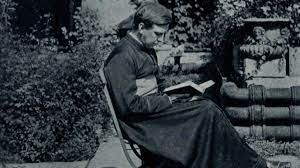Typically incisive, chapter 2 of Part II of Robert Hugh Benson’s Non-Catholic Denominations is titled “The Nonconformists: Nonconformity in General.” Now, the “Nonconformists” in English religion were those Protestants who did not adhere to the Church of England, the Church established by the State. That is, they wanted to remain independent of the State and its Church. It included Presbyterians, Methodists, Congregationalists, and an ever growing number of smaller groups. At the outset, Benson makes the brilliant point that:
NONCONFORMITY … is the result of nothing else but of the national principle in religion pushed a little farther upon perfectly logical lines. The Anglican reformers never indeed contemplated it ; and there was … much indignation in the sixteenth century at the rise of the “Independents” … Yet the Independent’s answer is complete. If it is permitted for a nation to assert its individual religious rights against the union of nations hitherto known as Catholicism; it is as legitimate for a group to assert its individual rights against the union of groups only recently known as Anglicanism. It is of no weight for the Anglican to answer that he has not intentionally separated himself from the vital essence of the Catholic Church, but only from the unwarranted usurpations of particular authorities in that Church ; for the Nonconformist can parallel it immediately in his own answer to Nationalism. (118)
That is, if you could then separate from the rest of the Church, why can’t I now separate from you? If you say that the Pope has usurped authority over the consciences of Christians, then I say that you, the monarch of England, have done likewise. And this line of argument can be pushed until “absolute individualism,” which is the same as “pure Protestantism,” is reached (119).
Benson also puts it this way: the visible unity of the Church used to be insisted on. The Anglicans came along and accepted the Protestant principle that it was the invisible unity of the soul with Christ which counted (a matter which some people must draw from the principle of private interpretation). That principle only has to be followed to come to the conclusion that:
if independent groups can separate themselves from this “Catholic Church” and yet claim an invisible union with the “Christian Church”; individuals can also separate themselves from the “Christian Church” and yet claim an invisible union with “Christ”. Thus there vanished largely from England any idea of a Divine Society through which the individual is sanctified, and there was substituted for it the theory that the individual, so to speak, comes first and the Society second in fact, that it is the individual that sanctifies the Society … (119)
If that was not enough, Benson continues the thought with intellectual vigour:
Individualism became, therefore the fabric, so to speak, of average English religion … Hence we see with extreme clearness the ordinary religious theory of the present day, to the effect that the sincerity of the individual is his only necessary virtue; the consequent loss of all sense of the value of objective truth, and the final development of the so-called supremely “Christian virtue” of tolerance (119-120)
Just as the “Reformers” had appealed to the Bible against the Catholic Church and its authority, the Nonconformists now appealed to the Bible against the “Reformers” (120). And each Independent, each different Nonconformist, thinks that his own view of the Scripture is perfectly straightforward and clear – the only one available to a man of good faith (120-121). They lack the ability to “stand in imagination outside their system and criticise it from an impersonal point of view” (121).
And then, having seen this, Benson brings the perfectly correct insight that although Individualism flows from the “Reformation,” yet we all have “social instincts that cannot altogether be suppressed” (121). People do and will form groups, and the “constant formation of new sects (shows) the ineradicable social instincts reasserting themselves once more” (122).
These sects nonetheless did hold a true religious principle: that the State has no business in defining doctrinal matters a principle which as Benson notes, this is one which Catholics and Nonconformists hold in common (124). I might add that the Anglican Church seems to now in practice, to hold this doctrine, and also that the condescending attitude to non-Anglo-Saxon races which Benson noted in his time is disappearing.
There then follows a lengthy passage where Benson analyses a catechism of the “Free” Churches. It is not of great contemporary relevance, except in so far as Benson draws the prophetic conclusion that the spirit of the catechism was so far bent to giving no offence, that it had lost any “zeal for exact truth” (135). A unity of cloudy phrases is not worth very much, our author states, and the parties concerned have put together common formulas which lack any common belief, so uncertain of meaning are they (135). This catechism and the Churches which contributed to it were the ancestors of the Uniting Church.
